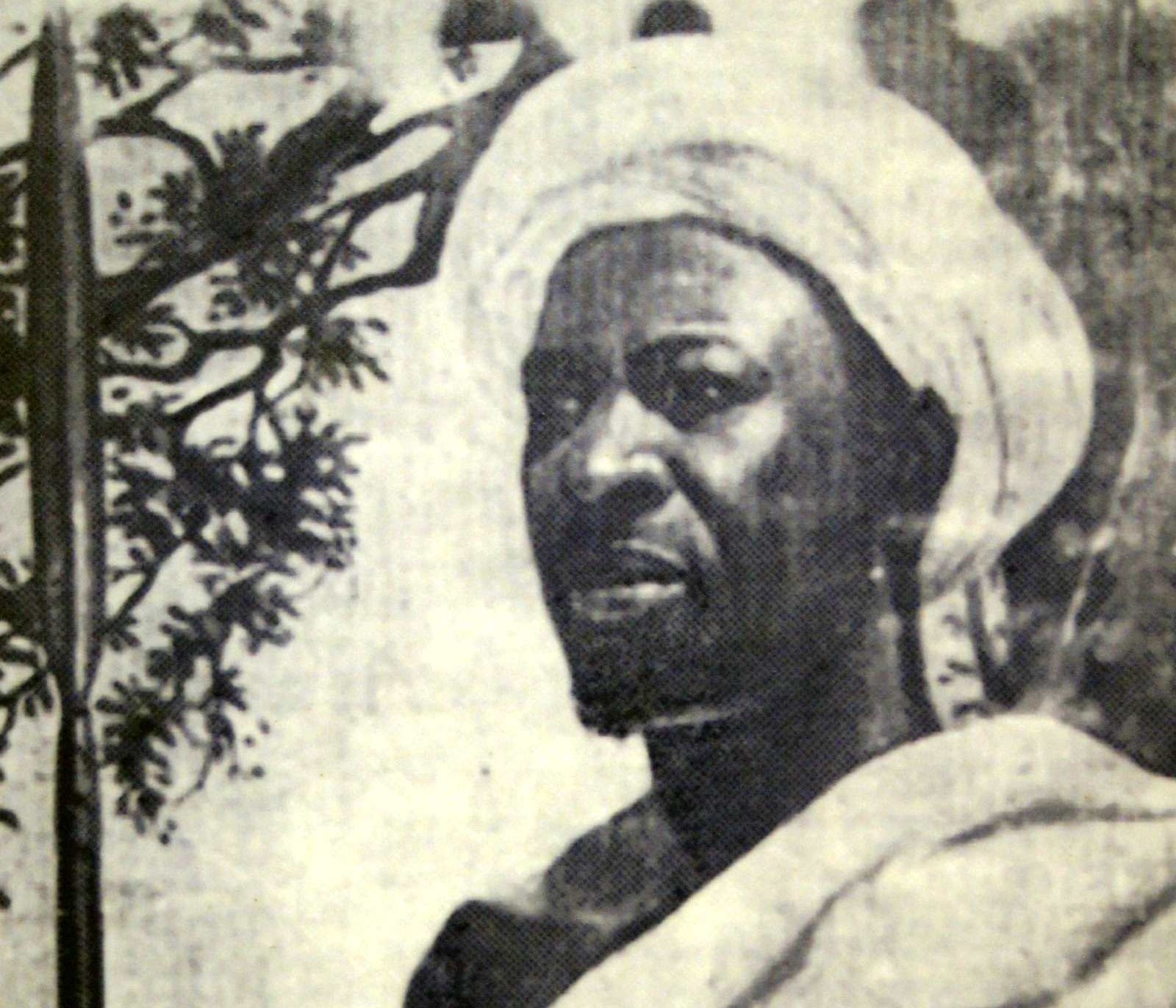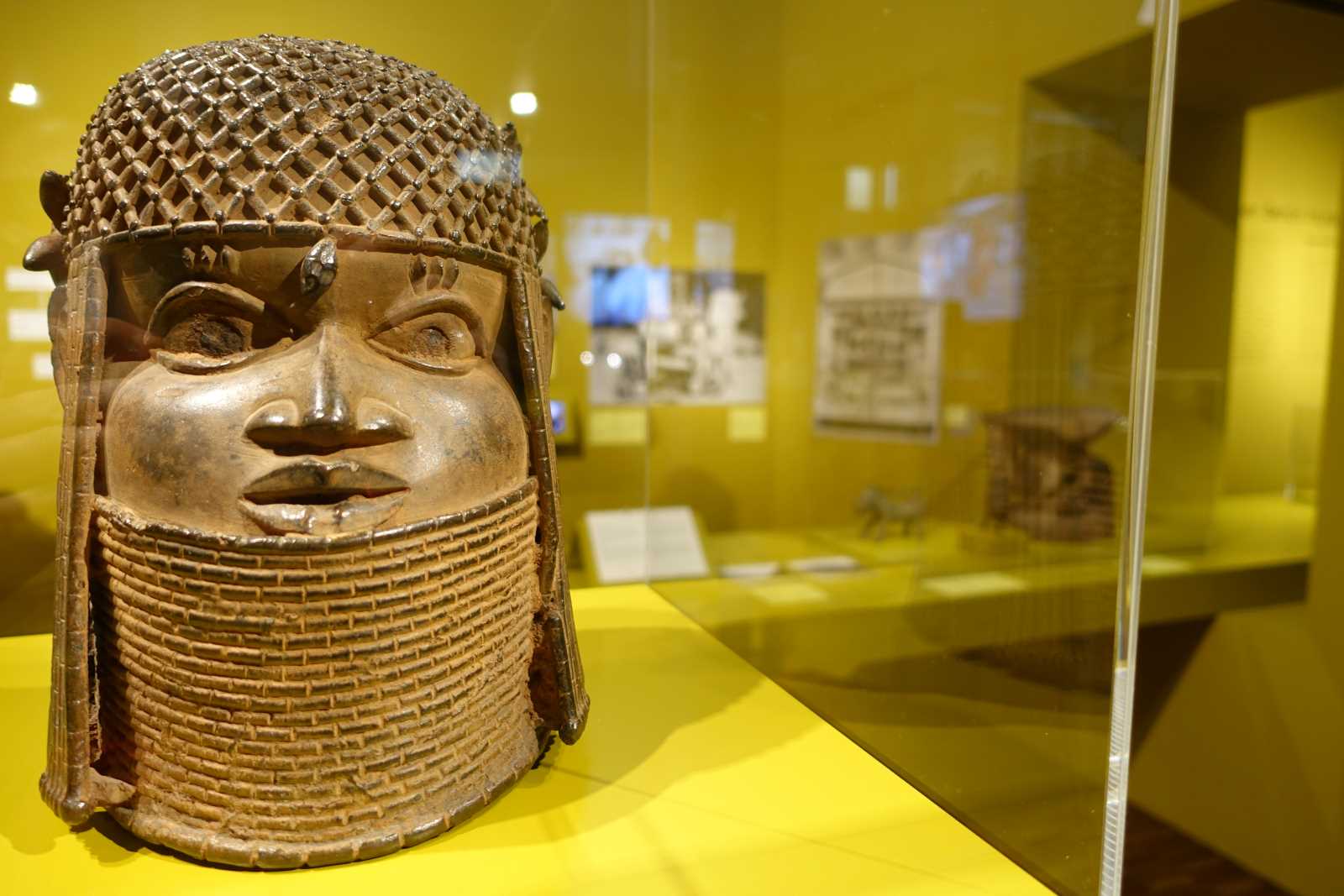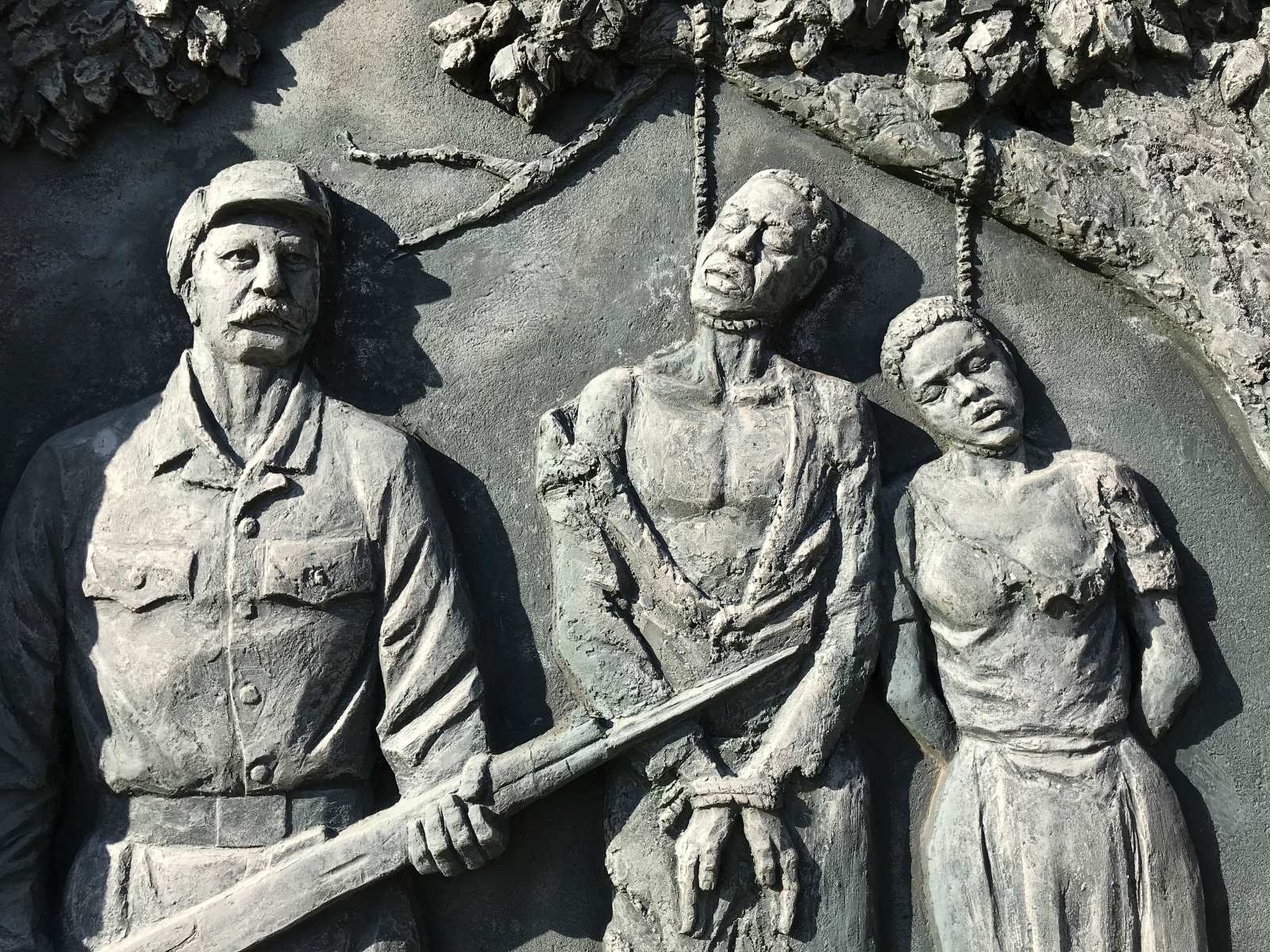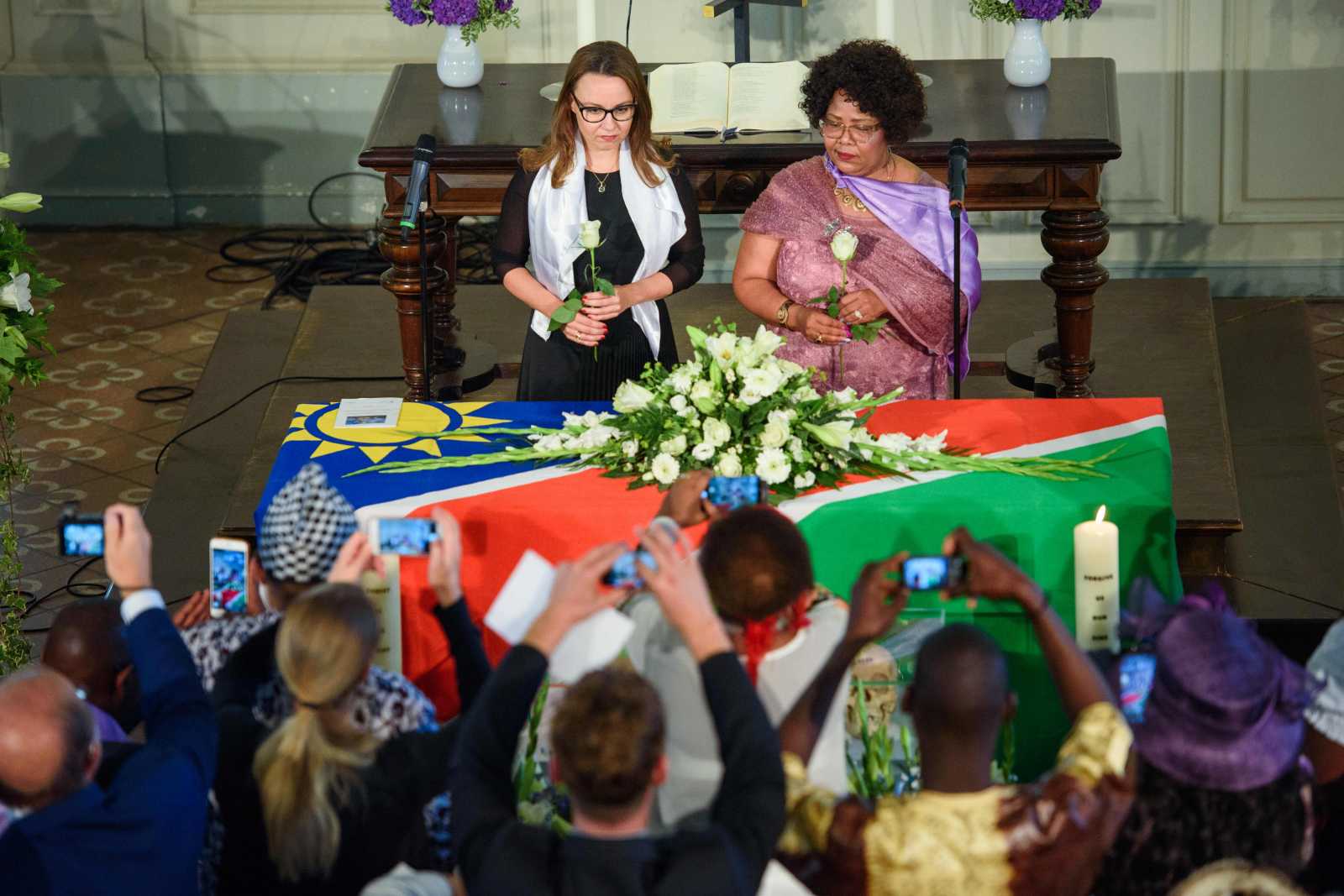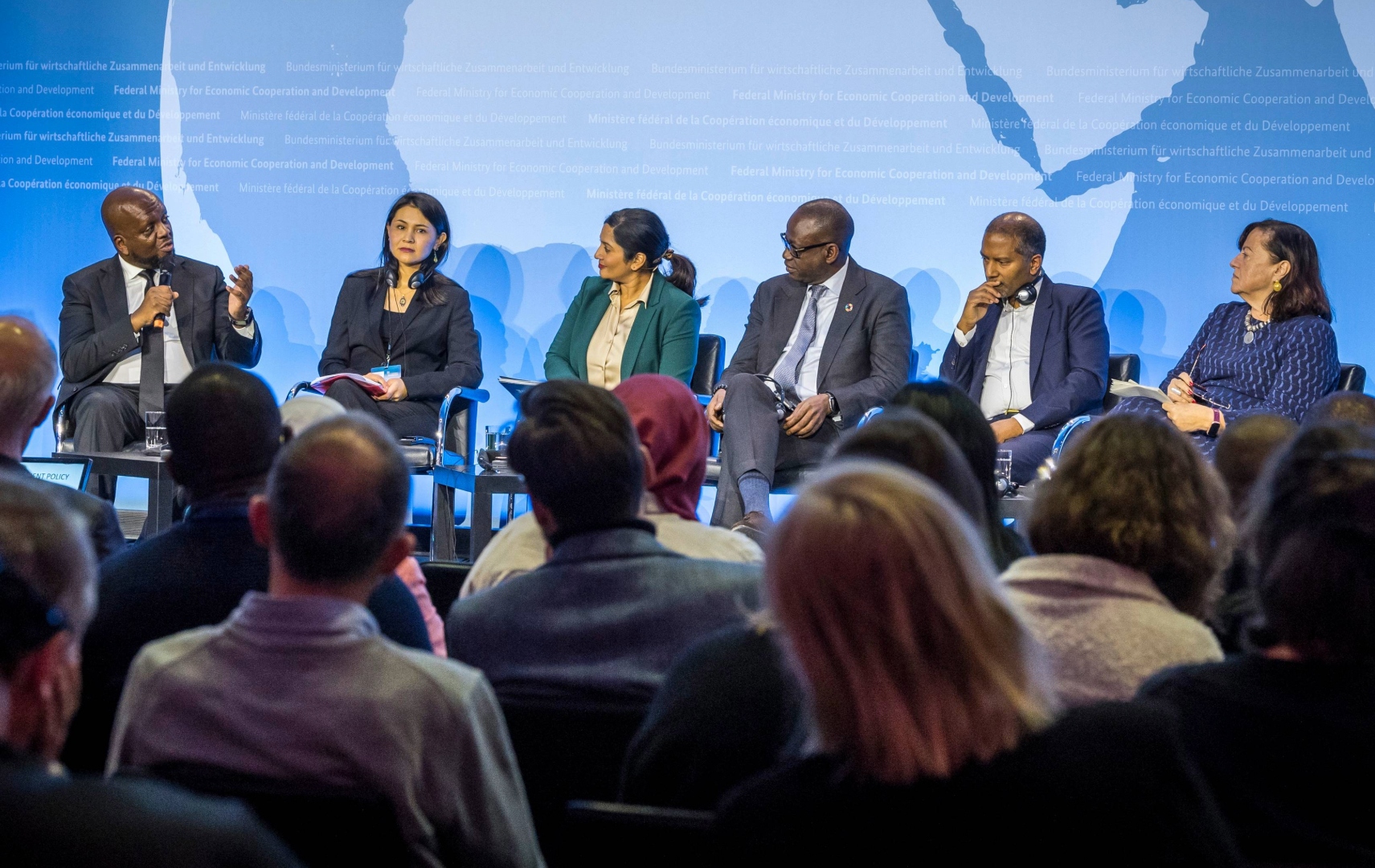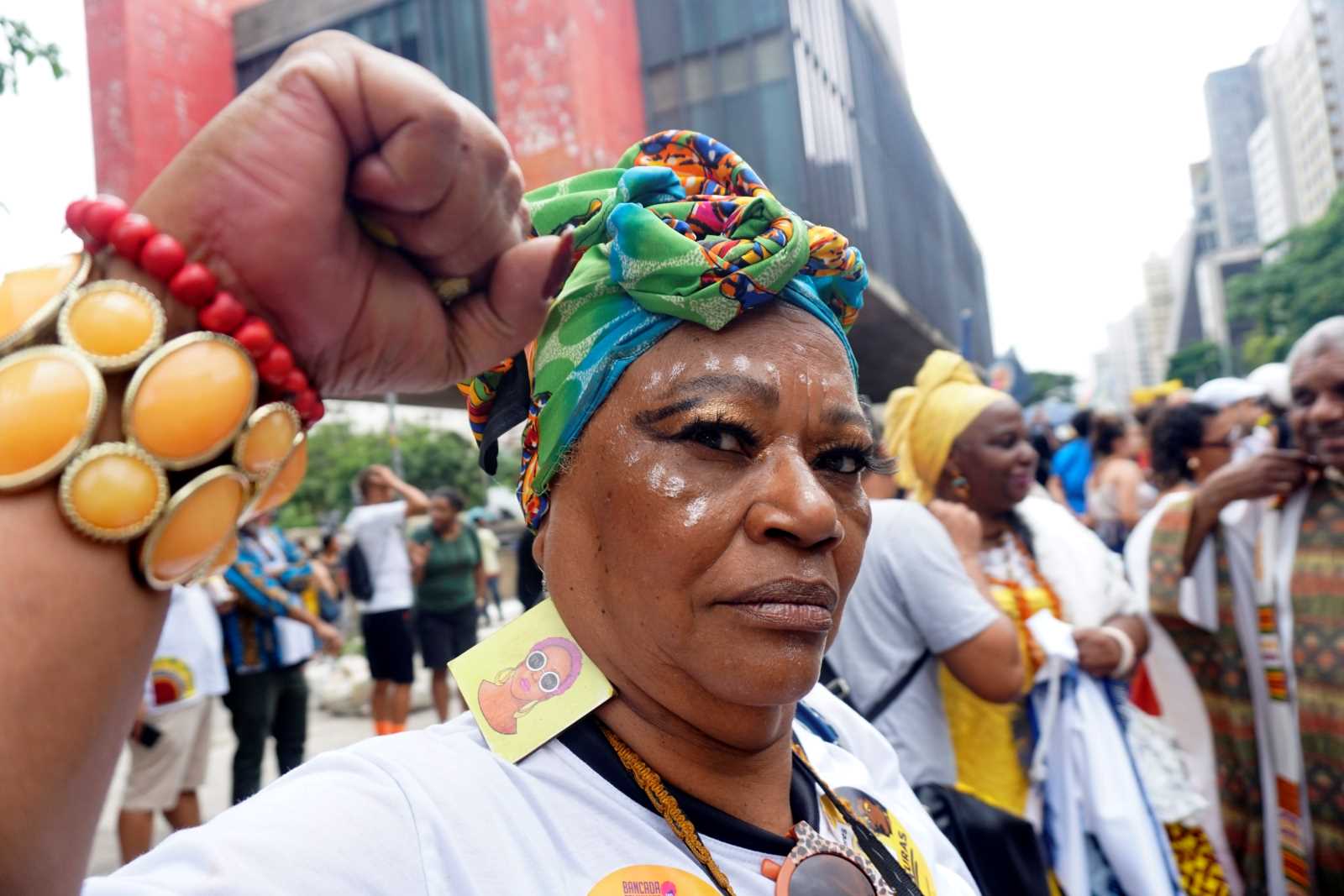Reparations
Words are not enough
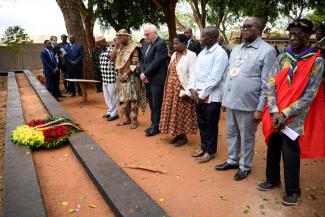
“I would like to ask for forgiveness for what Germans did to your ancestors here,” Steinmeier said at a ceremony in October 2023 at the Maji Maji Memorial Museum in Songea, southern Tanzania. Songea is named after Chief Songea Mbano, one of 60 chiefs of the Ngoni people who were executed on a single day in 1906 by German colonialists for their resistance to foreign rule.
Steinmeier apologised as he stood in front of their graves. The chiefs were executed in the so-called Maji Maji rebellion between 1905 and 1907, in which up to 300,000 people died. Most of them starved because the German colonialists used “scorched earth” tactics against the resistance – they burnt down fields and crops and thus deprived the people of their food. The Maji Maji rebellion is still an important part of East Africa’s historical self-image today, and it is part of history lessons from primary school onwards.
It was the first time that a German head of state publicly acknowledged his country’s colonial atrocities. However, the apology fell short of the demands for reparation, compensation and, above all, the return of the mortal remains of the ethnic leaders, most of which are still in Germany.
The skull of Chief Songea is one of numerous skulls that the Germans cut off and shipped to Germany. As Steinmeier’s speech made clear, Germany had not yet found it – the identification of “perhaps even thousands of skulls” in museums and anthropological collections is a challenge even for experts.
Reparations and repatriation
Today, it is clear that words are no longer enough for the descendants of the victims of colonial rule. They are demanding reparations and the repatriation of the remains of their ethnic leaders and ancestors.
Haji Abdulkarim is 90 years old and a grandson of Chief Songea. “They should return the skulls and remains of the local chiefs so that we have the chance to bury our ancestors with the respect they deserve and in accordance with our culture,” he says.
Another point that the descendants are demanding is financial compensation for colonialism and the associated atrocities. Abdulkarim emphasises: “The apology will have no meaning if the families do not receive financial compensation for the suffering caused by the colonisers.”
These colonisers were people like Carl Peters, a ruthless and brutal colonial administrator who was responsible for the colonisation of what was then German East Africa and is now Tanzania, Burundi and Rwanda. Carl Peters earned the local name “mkono wa damu” – Swahili for blood-stained hands – because of his cruelty towards the local population. Facts such as his name not being forgotten in East Africa underlines the general perception that Germany needs to do more today to address the crimes committed during its colonial rule.
Those demanding financial compensation in Tanzania and other parts of Africa point to the payments made by the Germans after the Holocaust. Available records show that Germany agreed with Israel in 1952 to pay around $ 714 million after Israel made a claim relating to the resettlement of 500,000 Jews who had fled Nazi-controlled countries.
Between 24,000 and 100,000 Ovaherero and 10,000 Nama were killed by the Germans in a genocide between 1904 and 1908 in former German South-West Africa (now Namibia). Both the Ovaherero and the Nama are still fighting to receive adequate compensation from Germany for the people killed by the German colonisers.
Lawrence Kilimwiko is a journalist based in Dar es Salaam.
lkilimwiko@yahoo.com


